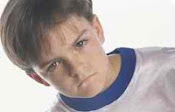Nonverbal Learning Disorder versus Autism Spectrum Disorder: What Is The Difference?
I can't tell you how happy I am to have found this site. I have a 9 year old son with ASD. He was diagnosed at 6 years old with a non verbal learning disorder, and attends a school for children with ADHD and/or autism. As his parent, I feel overwhelmed, scared, frustrated, and completely alone. I am hoping to find other parents who understand the issues we face daily, and who can share thoughts and ideas. I'm really hoping this site might be the life ring that keeps me from drowning! ~~~~~~~~~~~~~~~~~~~~~~~~~~~~~~~~~~~~~~~~~~~~~~~~ Nonverbal learning disorder (NLD) is a learning disorder that has many traits commonly associated with autism spectrum disorder (ASD). Like those with ASD, kids with NLD usually start to talk around 2 years of age (the age at which speech normally develops). Youngsters with NLD are very verbal, and may not have academic problems until they get into the upper grades in school. Often their biggest problem is with social skills.


